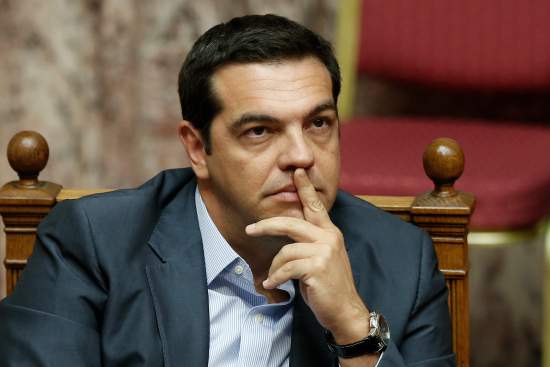Greek PM Alexis Tsipras has announced he is stepping down and has called an early election.
Alexis Tsipras had faced a rebellion within his ruling hard-left Syriza party over a new bailout deal which has been agreed with international creditors.
Greece received the first €13 billion ($14.5 billion) tranche on August 20, allowing it to repay a debt to the European Central Bank (ECB) and avoid a messy default.
However, the austerity measures needed for the deal angered many in his party.
Alexis Tsipras had to agree to further painful state sector cuts, including far-reaching pension reforms, in exchange for the bailout – and keeping Greece in the eurozone.
The overall bailout package is worth about €86 billion over three years. The payment of the first tranche was made on August 20 after the bailout deal – Greece’s third in five years – was approved by relevant European parliaments.

Alexis Tsipras made the announcement in a televised state address on August 20.
The prime minister said that with the first tranche of the bailout arriving, he now had the moral duty to ask the Greek people to deliver their judgment.
He said he would seek the vote of the Greek people to continue his government’s program.
Alexis Tsipras said Greeks would have to decide whether he had represented them courageously with the creditors.
He will visit President Prokopis Pavlopoulos later in the evening to submit his resignation. Greece will then be run by a caretaker government.
Reacting to the news, Martin Selmayr, European Commission President Jean-Claude Juncker’s chief-of-staff, tweeted that “swift elections in Greece can be a way to broaden support” for the bailout deal.
Some 43 of Syriza’s 149 members of parliament had either opposed the bailout or abstained in the August 14 parliamentary vote that approved the deal.
The rebellion meant Alexis Tsipras, who was elected this January, had effectively lost his parliamentary majority.
Alexis Tsipras had won power on a manifesto of opposing the stringent austerity conditions that he has now accepted.
He said he was forced to do so because a majority of Greeks wanted to stay in the eurozone, and this could not be achieved in any other way.
Greece remains under strict capital controls, with weekly limits on cash withdrawals for Greek citizens.
According to the Greek constitution, if a government resigns within a year of election, the president will ask the second-largest party – in this case the conservative New Democracy – to try to form an administration.
If this fails, the next largest party must be given a chance.
However, analysts say both parties can waive this and allow the president to approve the snap election.
